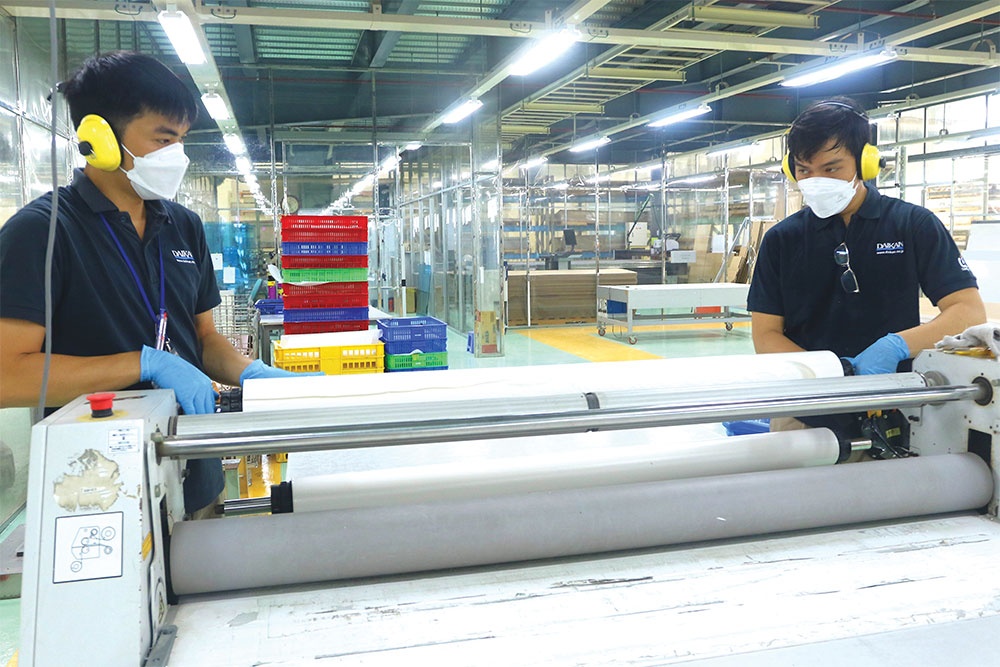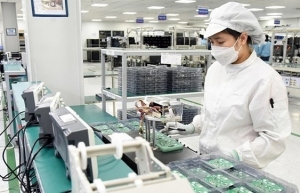New investment draft resolutions draw near
 |
| The draft wiil simplify investment procedures across the board |
At the 27th session of the National Assembly Standing Committee on October 10, National Assembly (NA) Chairman Vuong Dinh Hue asked the committee to give a second reading of the draft resolution to encourage investment with simplified procedures.
“This draft is one of a dozen items that the committee will discuss at the five-day session, which will later be submitted to the upcoming sixth plenary session of the legislature, which will be organised this month,” Chairman Hue said.
According to the draft, the resolution will take effect for five years from January 1, 2024. During the pilot, the Law on Investment (LoI), Law on the State Budget, and other relevant laws will be amended to replace earlier provisions. At the same time, Vietnam wants to apply the global minimum tax (GMT) from 2024 and to facilitate enterprises to pay additional tax in Vietnam.
The Ministry of Planning and Investment (MPI) has consulted the Ministry of Justice on a government resolution on pilot policies to support investment in high-tech industries. The MPI said that changes in supplementing investment incentives and encouraging new investments in high-tech industries amid the GMT are a must to ensure the competitiveness and attractiveness of Vietnam.
The draft resolution mentions four forms of investment incentives: training and development of human resources; financial support to create fixed assets and social infrastructure; support for manufacturing high-tech products; and supporting research and development.
Regarding investment support methods, the compilation agency suggested that investment support should be deducted from enterprises’ corporate income tax obligations, or come directly from the state budget.
The investment encouragement policy on a trial basis is designed for several groups of businesses, which depend on their investment capital and their annual turnover.
The first priority is enterprises that operate projects with investment capital of over VND12 trillion ($506.3 million), or enterprises with a turnover of more than $843.8 million a year in high-tech manufacturing fields.
Furthermore, projects on research and development centres capitalised at over VND3 trillion ($126.6 million) will also be encouraged.
The MPI said that the measures follow the Organisation for Economic Co-operation and Development’s recommendations on creating policies amid application of the GMT worldwide. These are investment support measures being applied by other regional countries, though in Vietnam, this support still has not been passed into law.
Before the draft resolution is approved, policymakers will also consult foreign-invested manufacturers.
Japanese manufacturer Canon has proposed to expand the parameters of the resolution, so it can feel the full benefits.
“According to the draft resolution, only businesses in high-tech industries can enjoy these incentives. However, businesses affected by the GMT are in many other different industries. Many have large scale and have made great contributions to Vietnam’s socioeconomic development,” the company noted in a proposal submitted to the MPI.
Canon said that the criteria for the incentivised businesses is not reasonable and does not ensure compliance with the policies and regulations on ensuring incentives in the LoI and the current Law on Corporate Income Tax.
The LoI stipulates that subjects eligible for investment incentives include many industries, scales, and investment locations, such as those manufacturing electronic products, manufacturing goods, and providing services to create or participate in value chains.
“Thus, the company has proposed to widen the scope for others to enjoy the incentives, that is for businesses in electric products with registered capital of VND7 trillion ($295.3 million) and upwards, and use at least 15,000 workers,” read the Cannon proposal.
 | Support policy for high-tech investment hitting two targets: Insiders Experts have called for policies to support investment in high technology, which they said will help Vietnam grasp the opportunities in luring foreign direct investment (FDI) and at the same time avoid becoming the venue of low-quality and small-scale projects. |
What the stars mean:
★ Poor ★ ★ Promising ★★★ Good ★★★★ Very good ★★★★★ Exceptional
Related Contents
Latest News
More News
- Kurz Vietnam expands Gia Lai factory (February 27, 2026 | 16:37)
- SK Innovation-led consortium wins $2.3 billion LNG project in Nghe An (February 25, 2026 | 07:56)
- THACO opens $70 million manufacturing complex in Danang (February 25, 2026 | 07:54)
- Phu Quoc International Airport expansion approved to meet rising demand (February 24, 2026 | 10:00)
- Bac Giang International Logistics Centre faces land clearance barrier (February 24, 2026 | 08:00)
- Bright prospects abound in European investment (February 19, 2026 | 20:27)
- Internal strengths attest to commitment to progress (February 19, 2026 | 20:13)
- Vietnam, New Zealand seek level-up in ties (February 19, 2026 | 18:06)
- Untapped potential in relations with Indonesia (February 19, 2026 | 17:56)
- German strengths match Vietnamese aspirations (February 19, 2026 | 17:40)

 Tag:
Tag:




















 Mobile Version
Mobile Version